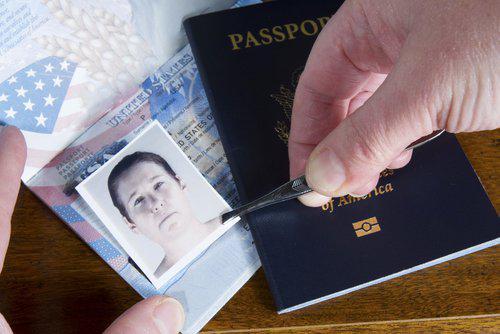Have You Been Charged with Forgery in Wisconsin?
 Forgery is the act of creating, altering, using, or possessing a false document with the intent to defraud someone, and it is considered a white collar crime in Wisconsin. There are many different ways forgery may occur, and the types of documents that might be the subject of a forgery charge vary widely. For example, forgeries can be made on documents such as birth certificates, transcripts, wills, or a bill of sale, or on objects, like membership cards, credit cards, or tickets to travel, that symbolizes some value or serves as a means of identification.
Forgery is the act of creating, altering, using, or possessing a false document with the intent to defraud someone, and it is considered a white collar crime in Wisconsin. There are many different ways forgery may occur, and the types of documents that might be the subject of a forgery charge vary widely. For example, forgeries can be made on documents such as birth certificates, transcripts, wills, or a bill of sale, or on objects, like membership cards, credit cards, or tickets to travel, that symbolizes some value or serves as a means of identification.
Regardless of the type of document or object at issue in a specific forgery case, in order to secure a conviction, the prosecutor must prove specific factors behind the forgery beyond a reasonable doubt. There are many defenses available that a skilled attorney can advance on your behalf.
Elements of a Forgery Claim
First and foremost, a prosecutor must prove that you falsely created or modified a document. Alternatively, the prosecutor can prove that you knowingly possessed a false document with the intent to use it fraudulently, or you attempted to use a falsified document to defraud someone. Therefore, possessing a forged document or using a forged document that somebody else altered satisfies this first element.
The second factor requires that the document involved (a) must be of legal significance and (b) must be false. Legal significance means that the document affects legal rights and obligations. This includes contracts that create legal rights, or codicils to a will that change beneficiaries. Not all documents have legal significance. For example, signing your spouse’s name to your mother’s birthday card is not a forgery because the card has no legal significance.
The writing must also be “false,” which means that it has been intentionally altered to lead a potential victim of forgery to believe that the document is something different than what it really is. An example of this is lying on a job application to lead a potential employer to believe you are more qualified for a position than you are.
Finally, the prosecutor must prove that you undertook these actions with the specific intent to defraud someone. Success is not what matters, just the intent to defraud. This element presumably protects innocent people who possess or sign fraudulent documents without knowing they are false from prosecution.
Penalties If You Are Convicted of Forgery
In Wisconsin, forgery convictions often carry severe penalties. Penalties for forgery are given according to the type of document or object that has been forged. If the documents involved are public or business records, or writings that are evidence of debt or property rights, the crime is punished as a Class H felony, and penalties include up to six years in prison, a fine of up to $10,000, or both. For other types of documents, including membership card, or travel tickets, or when the forgery charge stems from a crime involving a forged manufacturing mark on a product (a knock-off), the crime is a Class A misdemeanor, and the penalties include up to nine months in jail, a fine of up to $10,000, or both.
Forgery charges can result in serious prison time and fines. If you have been charged with forgery in Wisconsin and want to know all of your options and the defenses available to you, contact a skilled and dedicated Milwaukee criminal defense attorney today.
Sources:
https://docs.legis.wisconsin.gov/statutes/statutes/943/III/38







